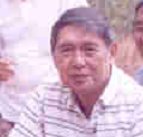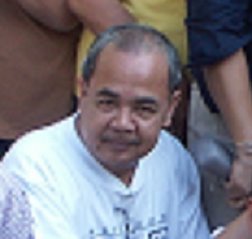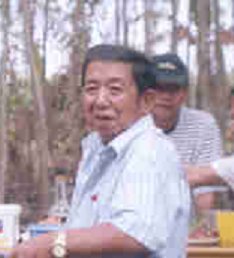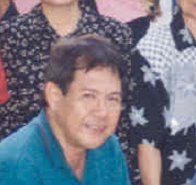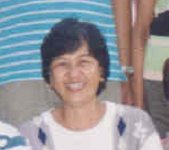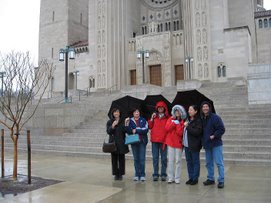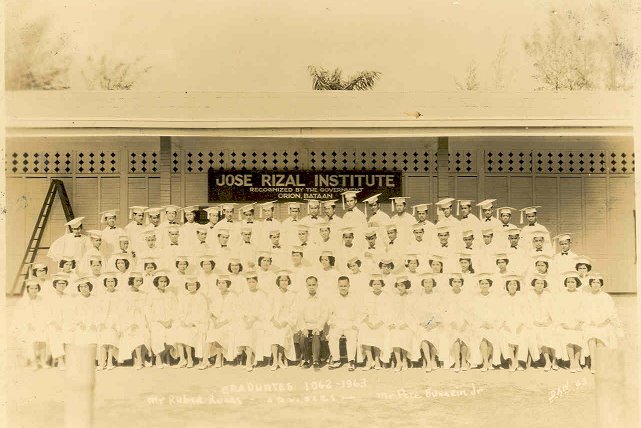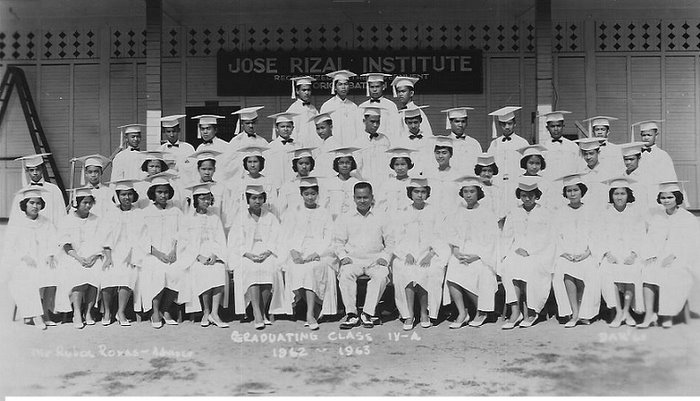
Great food, great conversation and great company. Thanks again, Manny and Debbie. We really have a nice evening.
Pilar and Annie
LINK : JRI Orion Batch 1963 at www.jriorionbatch1963.blogspot.com
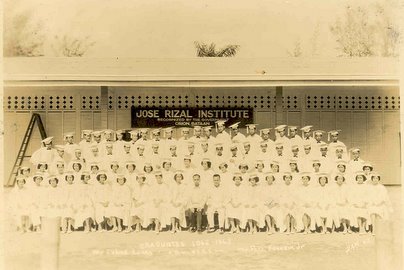
LINK : www.jriorionbatch1963.blogspot.com









Posted by
Ed Benjamin
at
6:35 PM
0
comments
![]()
Posted by
C C ramirez
at
4:39 AM
0
comments
![]()
Posted by
C C ramirez
at
12:46 AM
0
comments
![]()
Posted by
C C ramirez
at
2:34 PM
0
comments
![]()





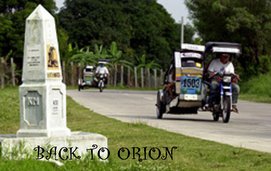

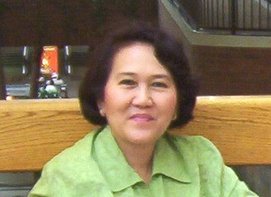

I love my husband so much, that’s a fact. But at my age of almost six decades, I must confess I have 'another love'. We’ve been inseparable since the late nineties. My husband, 'my other love' and myself have been cohabiting peacefully ever since, and in the same bedroom at that. My husband is so much fun to be with, but then he is either in the office or abroad most of the time. 'My other love' keeps me company 24/7. He never leaves me. He is so helpful in so many ways. He helps me remember names, addresses, an infinite area of knowledge, important dates, even helps me get in touch with our children, relatives, friends, and business contacts, as well. Why am I writing about 'my other love'? Call it 'separation anxiety'.I have no recourse but to leave him until the 31st of this month. For me, that would seem like eternity. I’m leaving for Manila and Orion, day after tomorrow. I feel like crying. I’ll be with my husband alright.But he wouldn't allow 'my other love' to go with us. It’s so sad, really sad! You see, 'my other love' is quite heavy, by human standard. And he has to be placed in secured boxes for travel. That would really be cumbersome. Can’t blame my husband for refusing to tag him along.Know he's being practical, because we would have to shell out money for excess baggage, which will most likely happen if I insist on us being a threesome. And so, I really have to say adieu, to you, 'my other love.' Please wait for me and welcome me back into your loving keyboard, ehrr, I mean,arms, when I come back. There, it's a slip of the tongue. aba, e bakit ka nagulat? Ano ba ang akala mong 'other love' ko? Ha? Grabe ka naman. Ang 'OTHER LOVE' ko ay itong PERSONAL COMPUTER ko. MY PC! kaya nga di ko pwedeng dalhin, dahil mabigat siya. o sige na nga, titiisin ko na lang ang paghihiwalay namin. "MY DEAR PC, I CAN'T WAIT FOR THE 31ST, SO WE CAN BE TOGETHER AGAIN! "




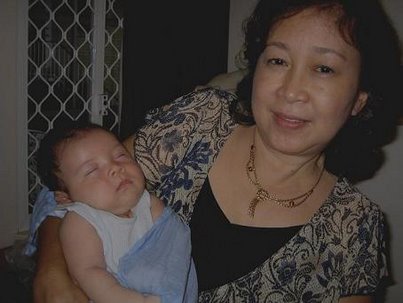
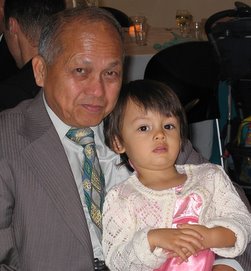
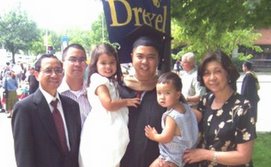






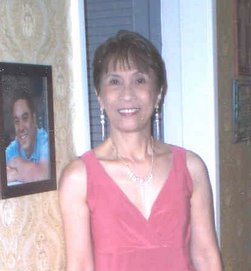


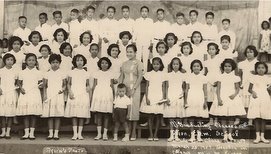

Batchmates: Narciso Racion, Ruben Gonzales, Concordia Baluyot, Rolando Santiago, Rolando Bagtas, Ruperto Estrella, Romeo Mariano, Rodolfo Cayabyab, Antonio Lopez Teachers: Mr Ruben Roxas, Mr Alfredo Angeles, Mr Florentino Simeon, Mr Joaquin Lonzon, Mr Pedro Bugarin.


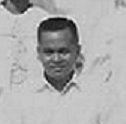
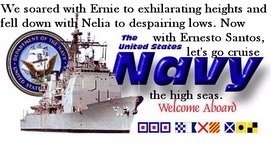
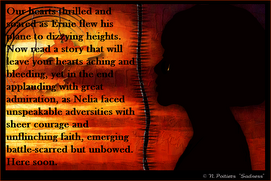







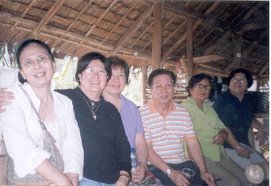
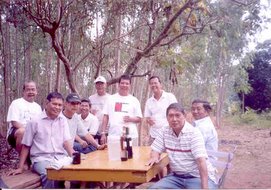


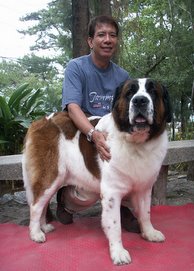
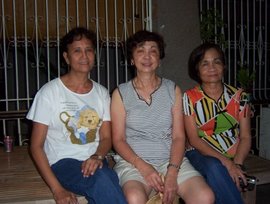
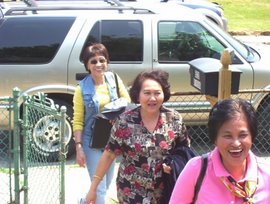
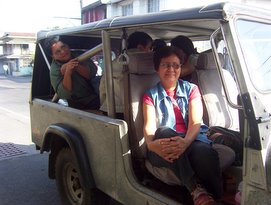





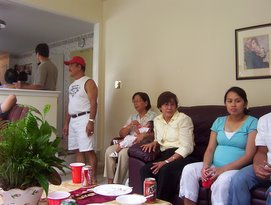


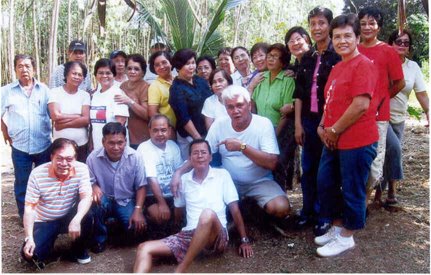
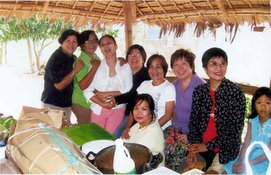

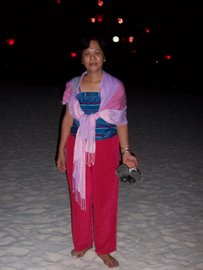


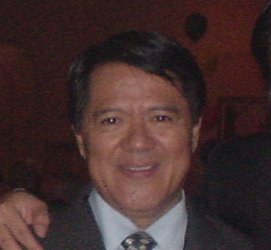
I was then stationed at Jolo, Sulu when a directive from our commander was handed down to re-supply Army troopers engaged in a firefight with the Muslim separatists at Danag town about 20 miles east of Jolo. I was to take the lead of 2 Hueys to transport boxes of ammo, c-rations, water and medicines. I called the aircrew and involved personnel to a briefing, after which we performed the usual pre-flight procedures determining that it would take 4 trips for the 2 Hueys to complete the mission. The preparations took into considerations proper coordination with ground troops pertaining to radio communication frequencies, signals, locating the landing zone, etc. We took the helicopters to flight with my wing man on my right rear. We climbed and maintained 2500 ft. which altitude is beyond enemy ground fire. In a few minutes, I established radio contact with the ground troopers. Then a visible white smoke signal appeared from a distance suggesting the location of the landing zone and the go-signal to land. I steered the helicopter into a rapid descent, and made a safe landing to a make-shift helipad wide enough to accommodate one helicopter in a small clearing among towering trees. Upon landing, the load master directed the unloading of cargo while the ground troopers gladly accepted them. In situations like this, it is preferred that the helicopter stay on the ground the least amount of time due to its vulnerability to attack. While this was happening, the 2nd helicopter circled above me providing air cover, guns ready just in case I am fired upon. After the cargoes were unloaded, I took off and instructed the other heli to come in for landing, and we switched roles when I got up in the air. The first batch of cargo was delivered in the shortest time possible, and we were so pleased we did it the most efficient way. We were poised to do the same till completion of the mission. The first 3 trips were uneventful. Weather was fine, flight routing was normal, air-ground and air-to-air communications were crisp and clear, everything was perfectly coordinated, and all personnel involved in the mission did their respective parts. It was on the last and final trip that something unusual happened. As I was approaching the landing zone for landing, I lost communication with the ground troopers. I assumed the radioman switched frequency or turned their radio off to avoid communication jamming by the enemies. I brushed aside the notion that something was going wrong. I continued my descent to land to the same landing spot, and suddenly all hell broke loose! It was Independence Day! We were met by volleys of ground fire coming from every directions and the helicopter was getting hit. I could hear through my flight helmet the crackling sounds of gun fire both from the ground troops and from the enemies. My left and right gunners started firing their M60 Machine guns. I dismissed the option of aborting landing and going around because I know the resulting climb will be slow because of our heavy load, and we would be exposed to heavy enemy fire. Instead, I decided to land, maneuvering the heli in such way as to conceal it among trees. I radioed my buddy heli to circle above me and cover me with air fire power. On the ground, firing seemed endless. I learned that the enemies closed in on the troopers while we were re-supplying them. I gave instructions amidst firings because the troopers were hesitant to take their supplies for fear of exposing themselves to enemy fire. While the load master was busy unloading the supplies, a bullet hit the helicopter door next to me, grazed my helmet and found its mark on the roof above me. Another bullet hit the left side of the helicopter and sent splinters on my gunner’s face but not life-threatening. I know there were other hits sustained by heli but I just didn’t pay attention. We stayed on the ground for the longest two minutes of my life. After the cargoes were off loaded, I saw a number of wounded soldiers crawled into the helicopter clutching their wounded bodies, and still firing their weapons on the enemies. I failed to notice but there is such a force keeping us alive and the helicopter running. I managed to put the helicopter to a hover, and my co-pilot pointed to warning signals on the instrument panel. I simply ignored the warnings and focused on getting away from this perilous situation. I lifted off and took the “nap-of-the-earth” maneuver (flying close to the ground as safe as possible to conceal the heli among available trees and obstacles to avoid enemy fire). We got away from the area and still tracer bullets were racing past us. I ordered my buddy heli to watch over me from his altitude and be on the look out for possible untoward situation because I know our heli is quite crippled. I radioed the control tower to dispatch support vehicles to the airport and declared emergency landing. As we approached Jolo airport, the helicopter engine suddenly went dead and the whining sound became silent. What remained was the flapping sound of the rotors, and the audible warnings from my helmet. Red and amber lights illuminated in the panels. Time to execute an autorotation landing which fortunately was emphasized and adequately practiced during our training.
Without engine power, I settled the helicopter safely at the end of the runway, immediately shut all systems down to prevent possible fire or explosion, and ordered everybody out of the helicopter. In a short while, an ambulance and fire truck arrived. The wounded Army soldiers and my aircrew were brought to the Sulu Provincial Hospital for treatment, and support vehicles were dispatched. The other helicopter landed safely behind me and the remaining cargoes were returned. Post-flight inspection revealed 34 bullet holes all over the helicopter which includes the rotors, flight controls, drive shafts, fuselage, tail boom, fuel tanks, and fuel lines causing fuel starvation resulting to engine quit. It was quite a miracle how we were able to go through and come back alive amidst the heavy firefight. In spite of the damage, we were able to accomplish the mission, and turned the tide of battle in the area. The Army troopers were able to counter the enemy’s advance and regained control of the town. This particular encounter has earned for me a gold cross medal which was awarded to me in a military honor and parade. The Gold Cross Medal is one of the highest award conferred to a military man in the performance of his duty in an exemplary display of courage and devotion. It was such a “feather in one’s hat” of which I feel very proud. I did not forget about my team, and I recommended that they too received an award. This feat further emboldened me, and found me in numerous encounters with the insurgents, and in much similar life-and-death situations. There were two instances when the helicopter I was flying was shot down twice, one in Basilan, and another in Cotabato. In those accomplishments, the Command has not failed to confer on me the appropriate awards. In total, I received 14 medals, excluding letters of commendation and appreciation both from military and civilian entities and personnel. In March 1976 during the PMA Graduation ceremony in Baguio, at a rank of First Lieutenant, I was conferred the most coveted award in the Academy, the PMA Cavalier Award for being an outstanding alumnus. Although this is an ego-booster, I tried to kept a low profile and simply did my assigned tasks. Later that year, I was promoted to Captain, and while I was in Cotabato as an Air Support Force commander, I was re-assigned to Nichols Air Base and assumed the role of the Wing Operations Staff Officer in-charge of plans and program. I performed my ground duty very well, and again received a Military Merit Medal for an exemplary service. Then, I was given a new command, the 505th Air Search and Rescue Squadron. The mission was to provide air search for downed military and civil aircraft within the Phil. Area of Responsibility and provide rescue operations and necessary first-aid medical services. I took responsibility of operating 12 helicopters, and bout 40 personnel including pilots, aircrew, and paramedics. This assignment provided me the opportunity to exercise leadership, and the management of valuable equipment, and highly trained personnel, even at a low rank of Captain (knowing this Unit is normally led by a Lt. Colonel). At times, I would fly with my men to get hands-on on how we accomplish our mission. In 1978, I was promoted to the rank of major, and was assigned to the Department of National Defense at the office of the Senior Executive Assistant to the Secretary. I was given the job of providing the department necessary advice on air operations both military and civil. It was such a far cry from my usual combat assignments, but it did give me a respite away from danger.
Note to Readers: Copy of earlier episode (s) available upon request.




